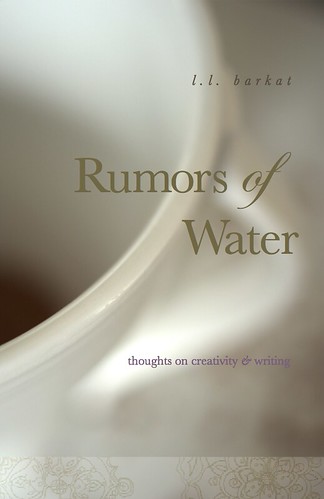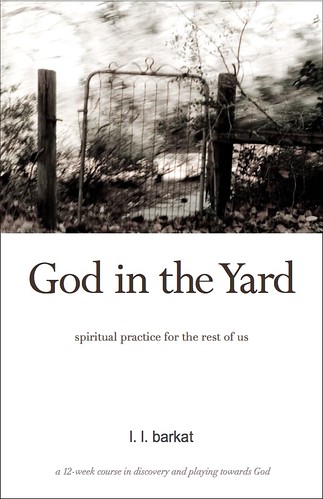Plan B: Land

Let me tell you a story about land.
When we first bought this little house, I felt a strong sense of responsibility to make my grass green and lush— here in Westchester County, lawnliness is next to godliness.
So, I went to the local nursery and had a conversation something like this. “What can I do to make my lawn greener?”
“Well, ma’am, the brown spots are from beetle larvae. You can put this on the lawn and take care of that problem.”
Beetle larvae sounds like a terrible thing. I pick up the bag and get ready to put it in my cart. “Will it kill earthworms, too?” I ask. I wouldn’t want it to kill earthworms. “Can I let my kids play on the lawn?”
The nursery guy gets quiet. Yes, it kills the worms, I see. No, I shouldn’t let my kids play on the lawn.
We talk about dandelions, instead, and my herbicidal possibilities. But something about all these “cides” is getting under my skin.
I think of my sister’s comment, “Pesticide, herbicide, homicide, infanticide, suicide. The ‘cides’ all lead in one direction.” She is right, more than she knows. Herbicides and pesticides are linked to an increase in lymphomas, notes Sandra Steingraber. Dogs (who lounge on our lawns) and farmers (who spray our crops) have the highest rates of these cancers. No one talks much about the earthworms and kids, but I see the connection.
Anyway, in the end I go with Plan B. No pesticides. No herbicides. I buy a 50 pound bag of grass seed which I use to overseed. And I forget about the dream of a false perfection that relies on the insidious “cides.”
“ And God said, 'Let the land produce living creatures…'” Genesis 1:24
For more Plan B thoughts and resources, visit my new blog.
Painted Hills, Central Oregon. Photo by Ric Ergenbright. Used with permission.















13 Comments:
LL: It's so interesting that I found this post on your blog this morning. On my drive into work, I was thinking about you and your social issues book club and the different posts that have come from that club on this blog. I started wondering how long you have been passionate about the earth and those of us who inhabit it. If it's a new development in your life, I just think that is so cool of God to reveal new areas of life for us to care about as we continue to grow and live in the world.
Hello!
Hope you had a good Thanks Giving break!
I found an earth worm on the rocky beach that had fallen from the grass embankment above, it was a freezing cold day and I think the worm had given up hope of finding earth to crawl back into because it was motionless. My young son was with me and I picked up the cold stiff worm and cupped it in my hands telling my son that the warmth would bring it back to life. Sure enough after a couple of minutes it started to move and then after a few minutes it started to wriggle. We carried the worm up to the embankment made a hole in the earth and the worm started to burrow in to the soil.
It reminds me of a story I once heard about a man walking along a beach, he saw an old man in the distance picking up stranded star fish that were dying in the sun and throwing them back into the waves.
The man said to the other man “why are you doing that? There are hundreds of dying star fish washed up on the beach, what difference will it make?” The old man picked up a star fish and threw it into the waves and said to the man "It made a difference to that one"
Have a good week!
I like this post, especially how our false ideals of perfection have led to the "cides" of life.
Good stuff. God knows what nature needs to look like.
Yes, I like to rebel here in Westchester county. No 'cides for me. That's why my lawn is a brown mess (lack of watering--er--wasting water) and full of dandelions and weeds. And probably earthworms and beetles.
I think this has been one of the disappointments with homeownership and growing into a sense of place. As long as I wander, I can dream of the perfect place. But when I take out a mortgage and put a stake in my little plot, I have to live with what I've got. That slushy spot where the land dips low, the brown area where the leaves were neglected last year, the soft rivulets belonging to the moles.
Wendell Berry has some remarkable thoughts on land use and land preservation in several of his essays from "The Way of Ignorance and Other Essays."
I'm looking forward to some practical help on greener living from your other blog too!
"Lawnliness is next to godliness." I love it. What a trap to fall into. In Texas we have these beautiful tall grasses that grow naturally. They are drought resistant too. But they look funny as a lawn. And of course we all fight to get rid of them and replace them with our synthetically engineered bermadus or our water sucking st. augustines.
Be sure to check out Lydia Davis' reading of "A Mown Lawn." You can find the text of it buried in this old McSweeney's post.
Christianne... I suppose I have been passionate about the earth all my life... it is partly what gave me sanity in an insane childhood situation. But, finding a theological basis for that passion has taken longer, since there seems to be a dearth of teaching in this area. Anyhow, God has revealed the theological side, and yes, this is so cool.
Martin... I love that story of you and your son... how you taught him compassion in a single, simple act. I consider that if we all treated each other with such warmth, there would be far more life in the world.
Heather... yes, it has been interesting to consider what "perfection" truly is.
Shannon... indeed, God knows. Thanks for stopping in. :)
Andrea... love that rebel heart! No need for a brown lawn, though. Try overseeding... that is, putting a ton of grass seed down in the fall and early spring. It will crowd out the weeds, which tend to cycle more frequently, leaving brown trails.
Charity... maybe that's the problem... when we "stake out" our territory, we set out to bring it to perfection... an elusive goal and not necessarily a noble one either. I loved your response here... so poetic.
Mark... oh, water. Don't even get me started. What do you know about the aquifer under Texas? Interesting to consider its relationship to the non-native grass addiction. I'll go read your offering later. Thanks!
You are right L.L. - we put too many "cides" into our world and wonder why we are so sick...Good for you that you didn't buy the stuff. If we buy anything to get rid of some stuff we don't want, we read everything on the label. More often we have put things back on the shelve and live with some little inconveniences. Thank you for sharing your thoughts on all the "cides" that make us sick.
Mark... I went to hear that poem. Great word-play, with a healthy dose of accessible philosophy! Thanks for passing it on.
Eph2810... and it's interesting to consider why we think of these things as inconveniences we must battle with. Not to say we have no place in molding our world, but still... do we mold it towards life or death?
I hate dandelions. Their broad leaves deprive the grass of sunlight, the roots choke out other desirable roots, and their seed goes where we have planted other things. They yellow bursts eventually disappear, leaving brown holes where there ought to have been lush green stuff.
But “cides” are awful. I’m sure that some damage is done by carelessness and disregarding manufacturer’s instructions, but then, they probably wouldn’t put a tag on the stuff that says, “Our company doesn’t give a rip about anything except taking your money, even though we …” Then they list forty bullet points of side effects.
I used less product and more sweat this year, but the lawn did not look as happy as it did a couple of years ago. Now, I am troubled about how to go about this next spring.
Sorry, I'm venting. I hate dandelions; did I say that already?
L.L.,
Thanks for this great post. And I found the comments helpful as well.
I'm a person drowning in a bad yard. So I'll overseed asap (prob now will have to wait until Spring). And we mostly have avoided the 'cides. Though other lawns look so much better (of course that's not saying anything).
It is fun to have a classic reel Scotts mower. But it only mows real grass. So I have to go over our small yard, at least twice. Wait till next year!
Thanks.
Craver... dandelion issues, huh? I'm sure there's a counselor somewhere who deals with that little neurosis. (Honestly, how did we get here, where we hate little yellow flowers?)
Your lawn looks less "happy" (human emotion there... check that out too:) because it's kinda dead. Oops, didn't mean to alarm you! Thing is, the "cides" kill the soil and it takes time to recoup. Also, the "cides" are persistent, which is a problem (gets in the ground water, air, eek!!)
Patience will be key, as will overseeding. Let a little compost get spread too. Nature's good food. More advice here in the spring, maybe. :)
Ted... thanks. It's not too late to seed, but you can also do it in early spring.
Post a Comment
<< Home